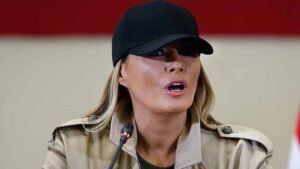
Reuters
Donald Trump celebrated the U.S. Supreme Court’s decision on his immunity claims as a “big win.” The court’s conservative majority ruled 6-3 that Trump enjoys immunity for his official acts as president but sent the case down to a lower court to determine whether his efforts to remain in office despite losing the 2020 election should be considered official acts.
“Big win for our Constitution and democracy,” Trump posted in all capital letters on Truth Social shortly after the ruling was issued. “Proud to be an American!”
The impact of the ruling on the case remains uncertain. This case is one of two federal prosecutions brought by special counsel Jack Smith, who has stated that the case would move forward even if the court determined some of Trump’s conduct should be considered his official duties as president.
The Supreme Court determined that Trump’s contacts with Justice Department officials and Vice President Mike Pence ahead of the Jan. 6 insurrection should be considered part of his core presidential duties and are thus subject to immunity, reported The Hill.
As the case returns to the lower court, it will now be up to Judge Tanya Chutkan to define which of Trump’s actions fall under presidential powers and which do not. This determination could significantly influence the progression of the case.
Trump’s legal team is expected to argue that his efforts to challenge the 2020 election results were within the scope of his presidential duties, thus warranting immunity. However, the lower court’s interpretation will be crucial in deciding the extent of this immunity.
The decision adds another layer of complexity to the ongoing legal battles Trump faces. While he celebrates the ruling as a vindication, the determination of his actions as either official or unofficial will be pivotal in the next steps of the prosecution.
Special counsel Jack Smith, who has been meticulously building the case, may present evidence that Trump’s actions to overturn the election were outside the bounds of his presidential role, thereby not protected by immunity. This evidence could include testimonies, documents, and other materials demonstrating that Trump’s conduct was aimed at personal gain rather than fulfilling presidential duties.
As the case unfolds, it will be closely watched, given its implications for presidential immunity and accountability. The lower court’s ruling will not only affect Trump but also set a precedent for how future presidents’ actions are judged concerning their official capacities and personal ambitions.


